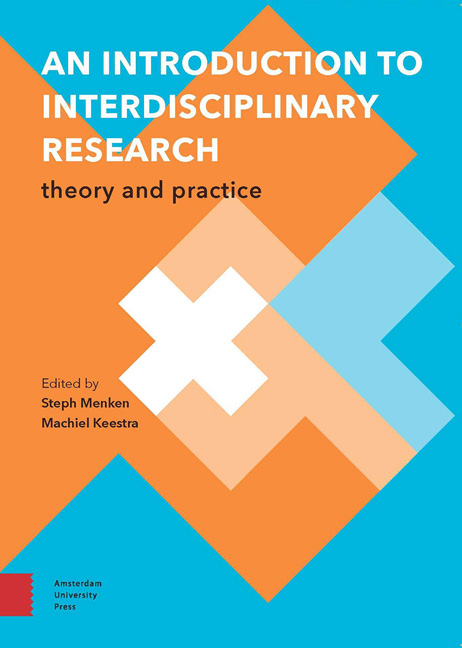Book contents
- Frontmatter
- Contents
- Acknowledgements
- Preface
- Part 1 The Handbook - ‘The What’
- 1 Introduction
- 2 What is Science? A Brief Philosophy of Science
- 3 The Disciplines
- 4 Interdisciplinarity
- 5 Complexity: The Main Driving Force Behind Interdisciplinarity
- 6 Interdisciplinary Integration
- Part 2 The Manual - ‘The How’
- 7 The Interdisciplinary Research Process
- 8 The Problem
- 9 Theoretical Framework and Research Question
- 10 How to Collect and Analyze your Data
- 11 Discussion and Conclusion(s)
- Part 3 Interdisciplinary Research in Practice
- 12 Interdisciplinary Research Example: Fogponics
- 13 Interdisciplinary Careers
- Further Reading
- References
- Colophon
10 - How to Collect and Analyze your Data
- Frontmatter
- Contents
- Acknowledgements
- Preface
- Part 1 The Handbook - ‘The What’
- 1 Introduction
- 2 What is Science? A Brief Philosophy of Science
- 3 The Disciplines
- 4 Interdisciplinarity
- 5 Complexity: The Main Driving Force Behind Interdisciplinarity
- 6 Interdisciplinary Integration
- Part 2 The Manual - ‘The How’
- 7 The Interdisciplinary Research Process
- 8 The Problem
- 9 Theoretical Framework and Research Question
- 10 How to Collect and Analyze your Data
- 11 Discussion and Conclusion(s)
- Part 3 Interdisciplinary Research in Practice
- 12 Interdisciplinary Research Example: Fogponics
- 13 Interdisciplinary Careers
- Further Reading
- References
- Colophon
Summary
After reviewing the relevant literature from the disciplines that were identified as being essential for addressing your initial research question, you have developed a theoretical framework that enabled you to refine the research question. Now, the question is, how are you going to answer this refined research question? It is time to develop a methodological framework for data collection and data analysis.
Considerations:
□ What are the relevant methods each discipline has to offer? Is a combination of methods possible?
□ How does the choice of methods influence the results?
Step 6 Develop research methods and design
The process of developing such a methodological framework to structure the practical matters of your research project is similar to the process you used to develop a theoretical framework to define the theoretical context and specify the focus of your research. This methodological framework is what we call ‘the design’ of your research. The process of translating your research questions into practical researchable questions is what we call ‘operationalization’, which has already been discussed in the context of the Science Cycle (chapter 2). This part of the research process is highlighted in figure 21.
In this chapter, we will guide you through the process of developing an adequate and manageable methodological framework. You have to ask yourself the following guiding questions during this step of the research process:
1 What (kind of) information is required in order to answer the research question?
2 What approach is the most appropriate for answering the research question?
3 Which methods are the most appropriate for producing the data needed?
Below we will elaborate more on these questions.
What (kind of) information is required in order to answer the research question?
The question you are trying to answer can take many forms. It can, for example, be an observational or experimental question, but might also be a question that leads to problem solving. The starting point can also be a prediction or a hypothesis instead of a question. In any case, you will have to unravel different features that are relevant with regard to the problem, prediction, or hypothesis in order to be able to answer or test it. Therefore, you first need to divide it into sub-questions. These sub-questions can be either disciplinary or interdisciplinary.
- Type
- Chapter
- Information
- An Introduction to Interdisciplinary ResearchTheory and Practice, pp. 89 - 95Publisher: Amsterdam University PressPrint publication year: 2016



